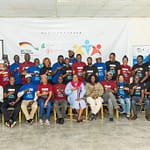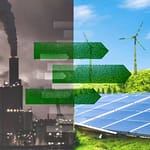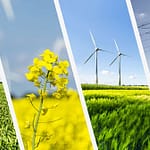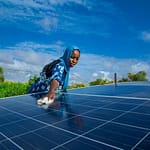In an ambitious effort to unlock funding and accelerate renewable energy development across the continent, the first-ever Investment Forum for Accelerated Partnership for Renewables in Africa (Apra) held in Nairobi, Kenya, and convened yesterday.
This landmark forum aims to bolster the continent’s contribution to global green energy investment as it receives less than 2% of worldwide investment in renewable energy in the last two decades.
Francesco La Camera, the director general of International Renewable Energy Agency (Irena), said, “We are here with a concrete pipeline of projects, taking what was an idea a short while ago to real-life implementation.”

The formation of Apra follows the passing of the Nairobi Declaration on Climate Change by African leaders—a resolution that calls for substantial reforms to international financial institutions and the establishment of new global taxes aimed at funding climate initiatives. The crux of Apra’s mission is to engage financial institutions and the private sector to tackle the barriers impeding financial growth in the renewable energy sector.
La Camera said Irena data shows that 473 GW of renewable energy capacity was added in 2023 globally. This means that 87% of newly installed capacity was renewable with only 13% for fossil fuels and nuclear combined.
He said, “This is in line with trends since 2015. This is good progress, but we are also clear that markets alone cannot deliver the 2030 development and climate goals.
“Additionally, the most worrying aspect is how uneven the deployment of renewables remains. Asia, Europe and North America accounted for almost 85% of global installed capacity at end-2023. Africa has accounted for only 1.6% of the global share of installed renewable power capacity,” he said.
In 2023 Sub-Saharan Africa energy-transition-related investment was 40 times less than the world average per capita.
The outcomes of Apra would be presented in collaboration with Global Energy Alliance for People and Planet (GEAPP) at the World Bank Spring Meetings in April 2025.
Asked by Business Report, about South Africa’s work with Irena, La Camera said, “Until now we have not been working so closely and the relationship has not always been fluent. We met the deputy minister at G20. We agreed to meet regularly so I hope that we can work closely with South Africa. We hope we can contribute.”
James Wandayi, the cabinet secretary of the Ministry of Petroleum and Energy, Kenya, said tripling the target of renewable energy was vital.
He said 600 million people in Africa lacked access to electricity. Accelerating green energy was not only essential for tackling the climate crisis, but for promoting inclusive economic growth and improving livelihoods across the continent.
Through Apra country specific approaches would be tailored, focusing on rapid energy transitions, securing sustainable livelihoods and fostering green industrialisation across Africa.
Wandayi said, “We believe that through this partnership, we can build positive networks and mechanisms to accelerate the deployment of renewables across the continent, thereby inspiring socio-economic development.
“Increasing the number of working projects is key to making progress. Moreover, we need to implement risk mitigation instruments that attract private investors, including partial risk guarantees, concessional financing and innovative financial mechanisms such as blended debt and grant instruments,” he said.
These instruments could help risk investments and unlock the capital, driving energy projects forward.
On Friday, a report, “Delivering on the UAE Consensus: Tracking progress toward tripling renewable energy capacity and doubling energy efficiency by 2030,” was released by the Irena in partnership with COP28, COP29, COP30 host Brazil and the Global Renewables Alliance.
It found that despite an unprecedented acceleration in renewable energy deployment in 2023, progress fell short to triple renewables by 2030 to keep the 1.5°C goal within reach.
Annual investment in renewable capacity would have to triple, from a new record high of $570 billion (R9.9 trillion) in 2023 to $1.5trl every year between 2024 and 2030 tripling renewable power.












